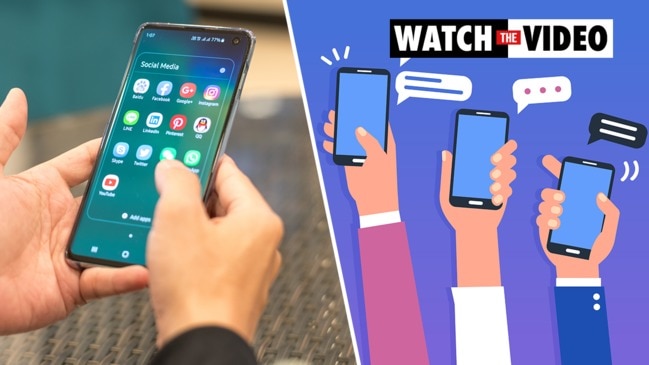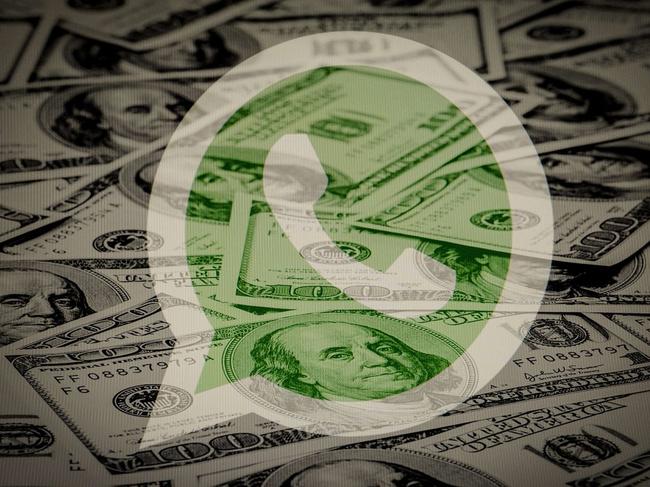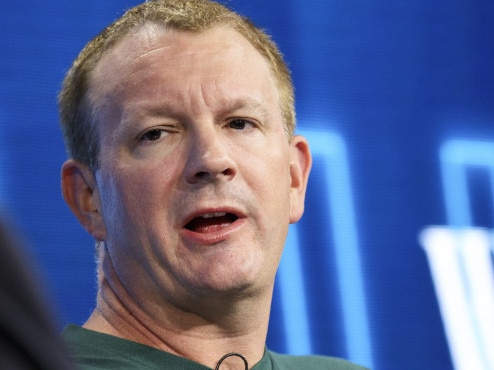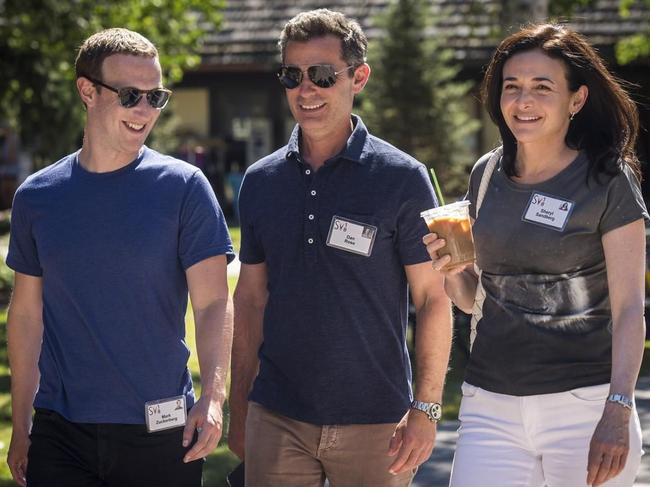‘I’m a sellout’: The man who walked away from $1 billion
BRIAN Acton thinks he is a sellout despite making “the most expensive moral stand in history” which cost him more than $1 billion.

Social
Don't miss out on the headlines from Social. Followed categories will be added to My News.
ON MARCH 21 this year, Brian Acton posted a tweet that quickly went viral and drew a lot of media attention.
“It is time. #deletefacebook” was all it said.
At the time, Facebook’s Cambridge Analytica scandal was just erupting, putting the spotlight on how the social media company uses and distributes user’s personal information.
But the reason Mr Acton’s tweet was so notable among a sea of others sporting the same hashtag was the fact that months earlier he had quit Facebook, leaving an eye-watering sum of money on the table.
He is the co-founder of messaging app WhatsApp — which Facebook bought for $30 billion in a stunning deal in 2014.
Mr Acton hasn’t tweeted again since that four-word message telling users to abandon his former employer, nor has he spoken publicly very much about his final days under the reign of Facebook’s 34-year-old CEO Mark Zuckerberg — until now.
In a long piece by Forbes, Mr Acton refers to himself as “a sellout” despite taking what Forbes journalist Parmy Olson described as “perhaps the most expensive moral stand in history”.
After he became fed up by Facebook’s desire to find a way to squeeze personal ads into WhatsApp, he walked away from the company a year before his final tranche of stock grants vested — a common payment method to reward workers with the ability to cash in shares if they stick around.
But he knew what he was doing. The day he left he took a screenshot of the stock price on his way out the door. The decision to leave cost him about $1.17 billion.

WhatsApp was founded by Brian Acton and Jan Koum and provides a messaging service with end-to-end encryption and, perhaps most importantly, was strictly ad-free. Essentially, those two principles are antithetical to how Facebook operates.
The social media giant is one of the world’s biggest digital advertisers and sucks up all the information about users it can because its sales pitch to advertisers is how much it knows about them.
Highly sophisticated systems of targeted ads based on user data is largely why Facebook is today worth more than $650 billion.
The WhatsApp founders, on the other hand, were very much pro-privacy guys.
According to Mr Acton, after the sale to Facebook it didn’t take long before he and his WhatsApp team came under pressure from Mark Zuckerberg and Facebook’s chief operating officer Sheryl Sandberg to monetise the messaging app.
He pushed back as Facebook questioned the encryption he’d helped build and laid the groundwork to introduce targeted ads and facilitate commercial messaging on the platform. But it was a fight he felt he couldn’t win.
“At the end of the day, I sold my company,” he told Forbes. “I sold my users’ privacy to a larger benefit. I made a choice and a compromise. And I live with that every day.”
He didn’t want to paint Facebook’s leaders as the bad guys but simply characterises them as “very good business people”.
The reality of a start-up selling itself to a huge public company that has shareholders and an imperative for revenue growth meant WhatsApp’s unique messaging service was destined to be swallowed up in the name of surveillance capitalism.
“They just represent a set of business practices, principles and ethics, and policies that I don’t necessarily agree with,” Mr Acton said of the executive team running Facebook.

But he made the decision to sell to Facebook knowing full well the company’s business model and despite leaving some money on the table, it was a deal that means he is now worth nearly $5 billion.
“This whole narrative bothers me. He knew what he was getting into and he made 3.6 billion doing it. His personal rebranding as some saviour is hard to swallow,” wrote one Twitter user in response to the story.
It’s a point of view Mr Acton acknowledges in the Forbes interview and one that has been expressed by many in the tech community.
Short version (via a friend whom I cannot credit): "I live with this guilt every day on this beachfront property here in Fiji. I can barely see my brand new 200 ft yacht out there in the harbor through the tears i'm shedding for my users' privacy" https://t.co/aE35l1UE72
— Kara Swisher (@karaswisher) September 26, 2018
I dunno, folks.
— Ian Bogost (@ibogost) September 26, 2018
1) Admitting to being a sellout is honest but not really noble.
2) Calling Zuck/Sandberg greedy after the fact doesn't count as truth-to-power or w/e.
3) There's something almost worse about the frugal billionaire than the prodigal one.https://t.co/gMOwxUDU2I
FACEBOOK TAKING CONTROL
On Tuesday, the founders of Instagram — which was acquired by Facebook six years ago — announced their resignations and plans to leave the company within weeks.
Creators Mike Krieger and Kevin Systrom, who developed the popular picture-based network in 2010, notified Facebook execs of their abrupt decision to leave.
There’s no official word on what caused the Instagram founders to bail, although rumours hint at clashes between the two men and Facebook executives over diminishing independence and demands to direct more users from Instagram to Facebook.
The company also recently added new ways to shop within the network, and introduced a streaming mobile video service called IGTV.
“We’re planning on taking some time off to explore our curiosity and creativity again,” Mr Krieger said in a statement.
“Building new things requires that we step back, understand what inspires us and match that with what the world needs. That’s what we plan to do.”
There are still a lot of true believers working on security/privacy issues at Facebook. For them, the one-two hit of the Instagram founders leaving and the interview Whatsapp co-founder Brian Acton just gave to Forbes has been devastating.
— Sheera Frenkel (@sheeraf) September 26, 2018
The exiting of top founders in quick succession has led some to suggest that Facebook’s plan to let the companies it buys operate independently is very much over.
In the beginning, WhatsApp had a stipulated degree of autonomy within the Facebook universe and continued to operate for a while out of its original offices but pretty soon pressure to monetise as much as possible threatened that independence.
In August, WhatsApp announced new tools for businesses to chat with users on the app and from next year it will show ads in its Status feature as the company seeks to boost revenue.
There are also questions around whether Facebook will maintain WhatsApp’s encryption protocol.
When Ms Sandberg was asked by US politicians in early September if WhatsApp still used end-to-end encryption, she avoided a straight yes or no, saying, “We are strong believers in encryption.”

Originally published as ‘I’m a sellout’: The man who walked away from $1 billion

